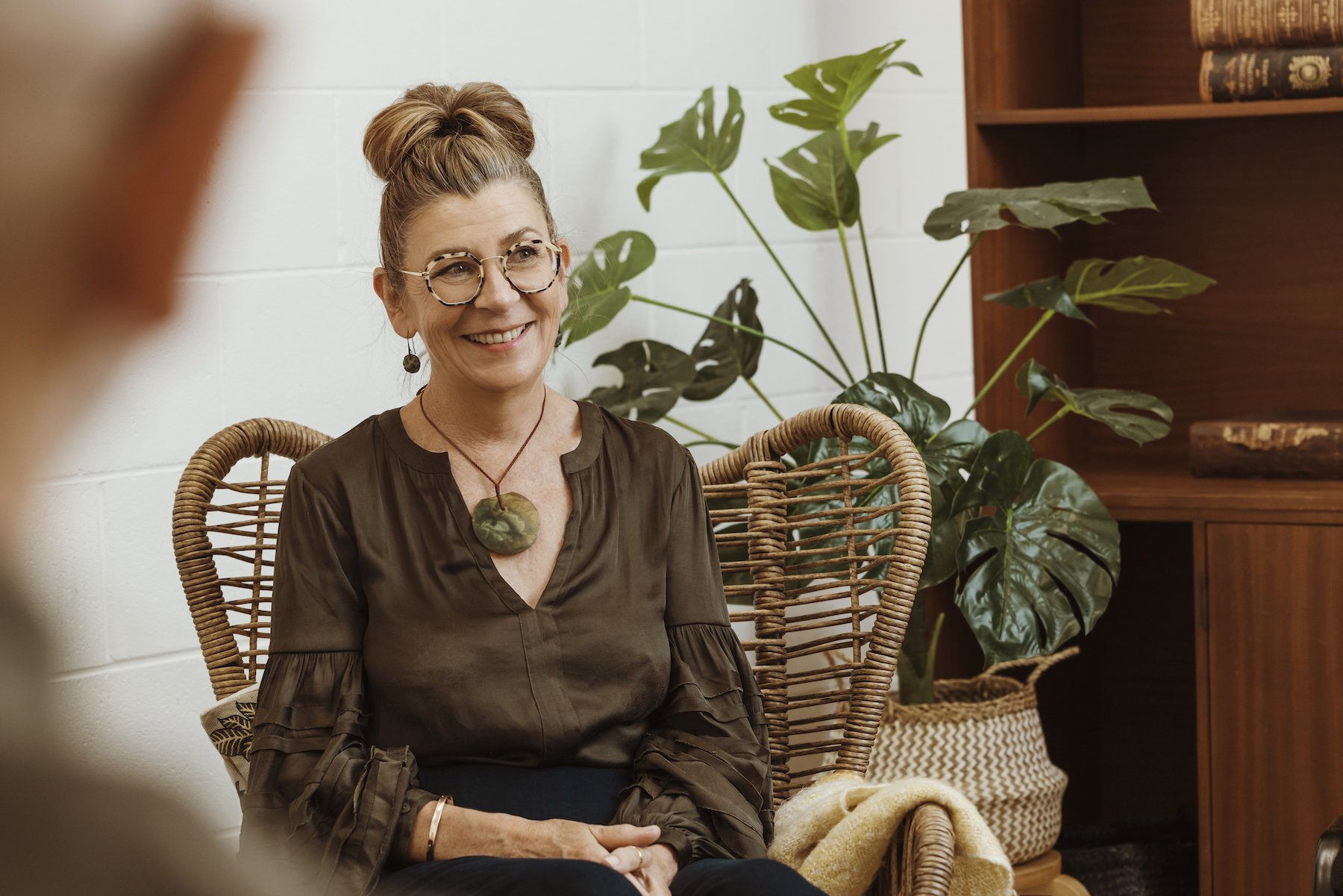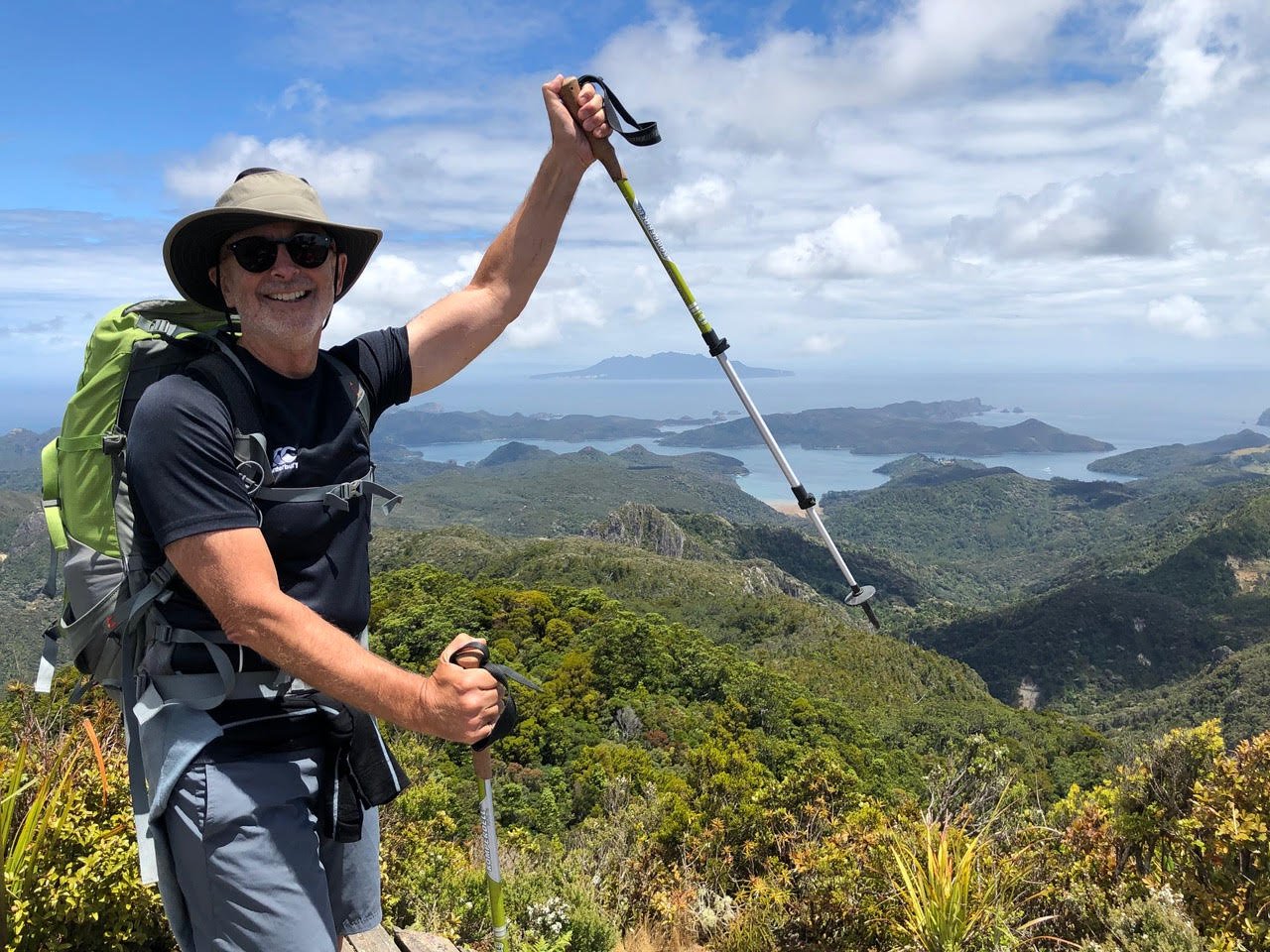Vic Francis | A Vineyard Pastor’s Perspective on Spiritual Direction
An SGM Interview with Vic Francis
The Value of Spiritual Direction for Pastors
Vic Francis is pastor of Shore Vineyard Church and a spiritual director and supervisor. He has a particular interest in offering spiritual direction to pastors, and after 30 years in ministry has an inside understanding of the needs and challenges facing church leaders in post-COVID Aoteaora, New Zealand. In this blogpost, Kathryn Overall has a conversation with Vic about his formation experience and the insights that are emerging from his hybrid vocation as a pastor and spiritual director.
Vic, as a pastor of a Vineyard church, what drew you towards contemplative spirituality and practices? Were they an inherited part of your Christian experience or something you discovered along your faith journey?
Vic and Fran Francis
My wife, Fran’s, discovery of things contemplative meant it discovered me more than I discovered it! She has been a spiritual director and retreat leader for years and runs the SGM Spiritual Directors Formation Programme.
I have deep evangelical/charismatic roots, so I probably had a few suspicions to start with and still don’t consider myself a natural contemplative. But it’s been something that has grown on me and a rich source of deepening my faith and life over the past decade or so.
What drew you towards becoming a spiritual director yourself?
About six years after I finished my Masters of Ministry, I felt it was time to learn and grow again. And of course Fran runs the SGM Spiritual Directors Formation Programme so it seemed quite opportune to explore that first. I didn’t do the training with a strong sense that I would become a spiritual director, but I knew it would at the very least help me to be a better pastor, a better listener, a more sensitive minister. So I figured, "Why not?"
What was your experience of the two-year formation programme like?
One reason I did the SGM spiritual directors programme was that it was called a “formation programme”. I figured I was willing to be “formed”, whatever that meant. So I entered it with an open mind and embraced all it had to offer. I have a principle of “trusting the process” - if I do something I don’t critique it on the way but trust that the people who in an SGM context have nurtured and developed the programme over 30-plus years know and have known what they’re doing. With that as a basis, I loved the programme. I read authors I’d never met before, explored topics that were completely new. And so I was formed and I did grow.
What was it like being a student in the SGM programme run by your wife, Fran?
It was great. I’m proud of her and enjoyed seeing her operating in her sweet spot. She kept me a bit at arm’s length which was good - wouldn’t read my assignments before I sent them in, sent me off to my separate bedroom at Kohanga Ako. I certainly didn’t get any favours! Quite right, too.
Fran Francis, National Co-ordinator of SGM Spiritual Directors Formation Programme
How would you describe the difference between a pastoral conversation and a spiritual direction conversation?
For me, personally, there’s a huge difference. As a pastor, my conversations have tended to be proactive - how can we fix this, how can I help, what’s a way forward?
But as a spiritual director, the conversations are quite different. My supervisor used to say of my very first directee, “I think you need to take him towards his pain”. And I would say, “But I don’t know what’s going to happen there!” But as I’ve indeed taken people towards their pain and asked the deepening questions and let God meet them rather than me . . . my insecurities have subsided and I almost find that as my more comfortable space now.
Also, as a spiritual director, I don’t feel the need to know as much stuff or have as many answers as I do as a pastor.
How has becoming a spiritual director changed you personally?
Personally, I have loved the concept of being a non-anxious presence. I think after 40 years of faith and 30 as a pastor I’ve seen most things, and witnessed or personally experienced most crises. So I think I can be non-anxious for people who can’t be, be it in spiritual direction or just life in general.
How has becoming a spiritual director changed you as a pastor?
As a pastor, I find I’m a bit of a hybrid now between needing to lead and call people forward (pastor), while having much more space internally to allow them to discover God for themselves (spiritual director).
What gifts do you think contemplative spirituality has to offer evangelical/charismatic churches in Aotearoa, New Zealand at this time?
I think evangelicals and charismatics need to discover contemplative spirituality (and contemplatives need to discover or retain aspects of evangelicalism and charismatic strengths). It’s not either-or, you don’t swap one for another, and being contemplative isn’t something a “grown-up” evangelical/charismatic should do.
Instead, why not celebrate and welcome both aspects and others? The church is a very broad entity indeed, and we can only benefit by tasting of many parts of it while being secure in the place we fit.
What are your thoughts on the value of spiritual direction for pastors and leaders?
I was driving along just a few weeks ago and a question popped into my mind, “If a pastor could only afford to see a spiritual director or a supervisor, which would I genuinely recommend?”
And I was a little surprised to think, with conviction, I’d recommend seeing a spiritual director. Why? Because much of what we get from supervision - and I see two supervisors, so I’m pro-supervision - can come from other sources (collegial relationships, books, conferences etc).
But pastors in everyday church life never truly get asked how their relationship with God is going, and only spiritual directors really have the privilege of doing that.
I understand that many of the people you accompany as a spiritual director are pastors or leaders. What are you noticing about the challenges they are facing?
I think many pastors are struggling in a post-Covid world as congregation numbers have shrunk and people’s attitudes to all things church and even God has changed. This can leave pastors feeling fragile and insecure.
In this context, I think pastors need to talk, to unburden, to allow their fears to be spoken and held in a safe way. So for pastors who are receiving spiritual direction, hopefully that’s what they are experiencing.
Having said that, though, most pastors choose supervision over spiritual direction - in my opinion, because they think it’ll help them grow their churches - so there’s still a lot who don’t have the privilege of spiritual direction and what God could offer them through it at this unique time in church history.
In your experience, how open are pastors to seeing a spiritual director? What might be some common fears or hesitations?
I do think many pastors have fears around spiritual direction - fears that it’s somehow “old lady” or maybe “new age” or puts them on an internal journey at odds with their call to reach the world.
But I think if they look deeper, it’s often more about their inner fears of going deeper and discovering things they can’t control. And yet my experience as a pastor, and hopefully with the pastors who come to see me for spiritual direction, is that it’s life-giving and ministry-enhancing.
Pastors who see spiritual directors become better pastors and deeper followers of Jesus - what’s not to like about that?
How can people connect with you or find out more about your spiritual direction practice?
Email is the best - vic@svc.org.nz. Promise I’ll answer quickly.






